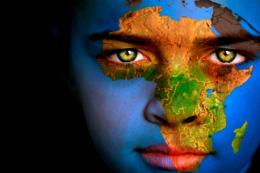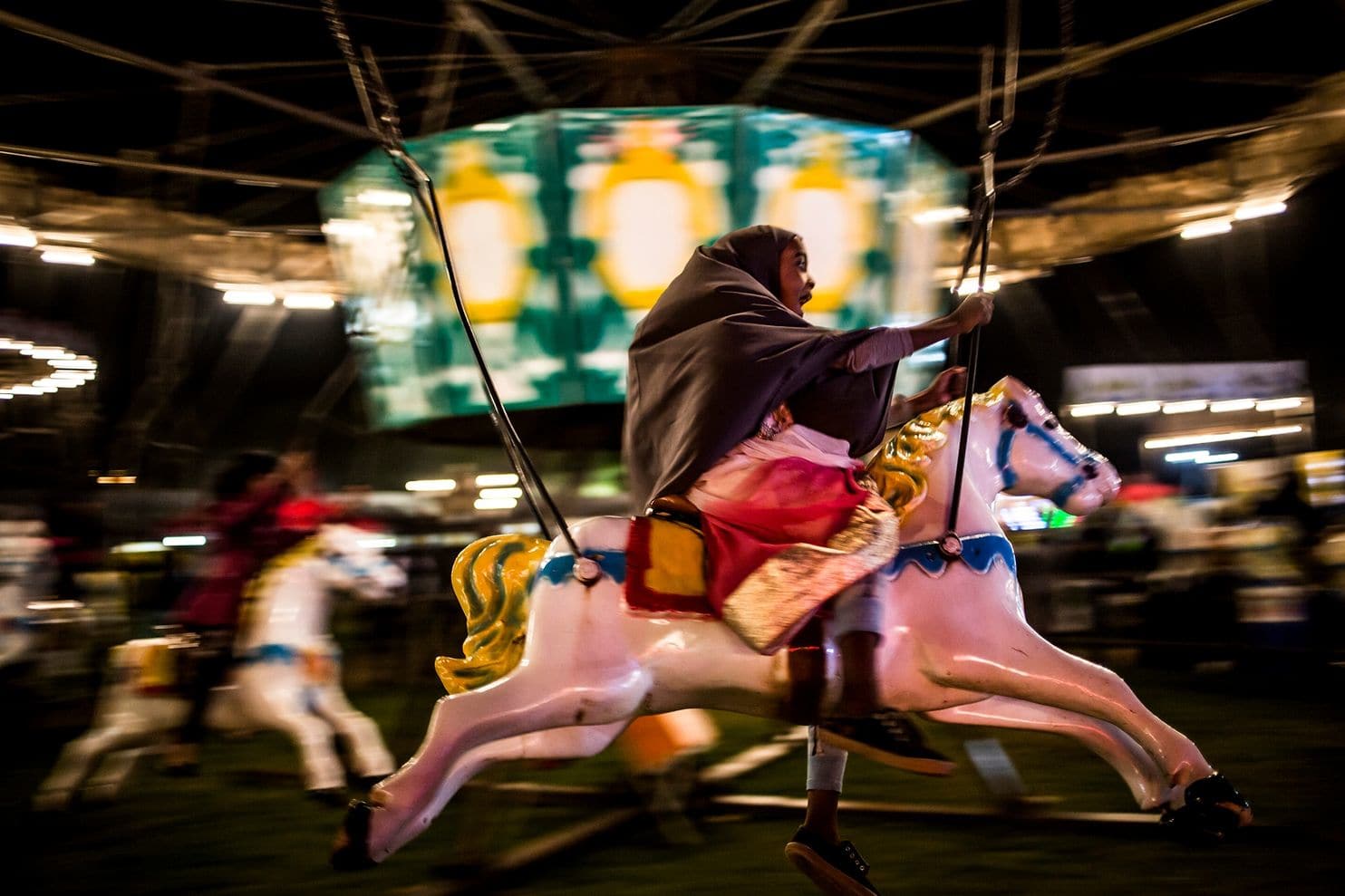| |||||||||
|
|||||||||
|
By:
Olivier Laurent | |||||||||
| Posted:
Jan,03-2019 11:45:47
| |||||||||
Voices of African Photography is a 10-part series presented in partnership with the African Photojournalism Database, a joint project of Everyday Africa and World Press Photo, to highlight the work of 10 African photographers and photojournalists.
"Poverty is a real barrier for many photographers on the continent," said Gulshan Khan, a South African photographer, especially "if you haven't had a formal education or if English is not your first language or you haven't been trained in this profession somewhat."
Khan considers herself lucky. After quitting a job in the sports industry, she attended a photography workshop where Agence France-Presse's chief Africa photographer, Marco Longari, noticed her talent. In the months leading to the workshop, she had photographed student protests across South Africa's universities, posting her work on Instagram. After the workshop, Longari offered Khan an internship. "That is how this journey began," she said.
Khan's focus is deeply anchored in news photography. "I love the candidness and the in-between moments," she explained. Through this, Khan finds herself moved by issues that deeply affect women. "Identity, power and belonging are overarching themes that inspire my learning," she said. "I am also interested in subcultures, in the 'organization of beliefs' that bind people together and the socioeconomics of things."
And Khan has found herself at the intersection of these themes. "Everything is driving me toward the exploration of my own heritage, which is culturally very mixed," she told In Sight. "Apartheid divided us in so many ways, including putting us into four reductive racial groups [black, colored, Indian and white]. We still have these stratified, ghettoized ideas of trying to understand each other through the oppressive lens of these different boxes."
What Khan wants to do is disrupt these concepts. "I want to show the nuances and truths we were institutionally told to forget ... and observe the levels of privilege that the system created."
From that desire emerged "The Things We Carry With Us," a project that takes a deeper look at Khan's own Muslim community in South Africa. It's a work in progress that Khan focuses on when she's not freelancing for AFP or the New York Times -- assignments that have rarely gone, in the past, to women. Khan said she is one of only a handful of women photographers who have made it in her native country. She's lucky, she said, but she also feels that it comes with responsibilities. "In the past year, I have had so many young girls come talk to me about how they would like to be a photojournalist and how they never thought they could before, and that, for me, means that I have a responsibility."
In that past year, Khan has also seen a trend among international photographic bodies to give platforms to under-represented photographers such as herself. "[That's] fantastic and truly needed," she explained. "But it has yet to translate into a true transformation in the industry at the upper echelons of the photographic world where the decisions are still being made."
She added: "More of us, in historically under-represented regions, need to be hired to not just tell our own stories but to tell the stories of the world. Aren't you interested to see how more Africans would photograph Europe or the U.S., for example? Or is this not as valuable as someone from the West telling the world's stories?"
A lot still needs to be done, Khan told In Sight. "I want to reach the point where we are not burdened with this thing called African photography and the unfair expectations of it. I say this not because I am not proud to be African but because there is a freedom, I think, that comes with being able to photograph anything without having to correct or respond to the wrongs of the past."
 Children fall asleep while women attend the first Taraweeh prayer of the Muslim holy month of fasting, Ramadan, at the Nizamiye Mosque in Johannesburg. (Gulshan Khan)  Bibi Aysha Valiallah, who is pregnant, clutches her belly while praying at the Zawiya Naqshbandi center in Baccleuch, South Africa. (Gulshan Khan)  Men perform the second part of the midday prayer out of congregation at the Itirileng mosque in Pretoria during Ramadan, the holy month of fasting. (Gulshan Khan)  Clothing hangs on a washing line of the building commonly known as Bekezela (Patience by those who live there in Johannesburg on June 2, 2018.)  Neo Pako, 22, who has been a reclaimer for three years, walks through a building in Johannesburg on June 2, 2018. “Reclaimers,” who gather waste from various areas, separate it and transport it on trolleys to recycling plants in the city.  Reclaimer Anthony Matuli, 39, pulls his trolley of plastic through the streets of Newtown, Johannesburg, on June 2, 2018. | |||||||||
|
Source:
| |||||||||
|
||||||||||||||||||||||||||||||||||||||||||||||||||||||||||||||||||||||||||||||||||||||||||||||||||||||||||||||
|
||||||||||||||||||||||||||||||||||||||||||||||||||||||||||||||||||||||||||||||||||||||||||||||||||||||||||||||


.jpg)







